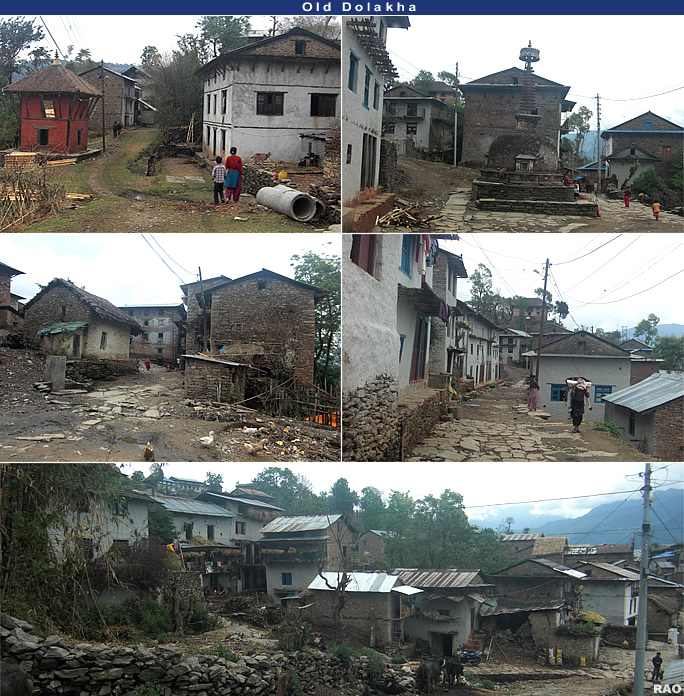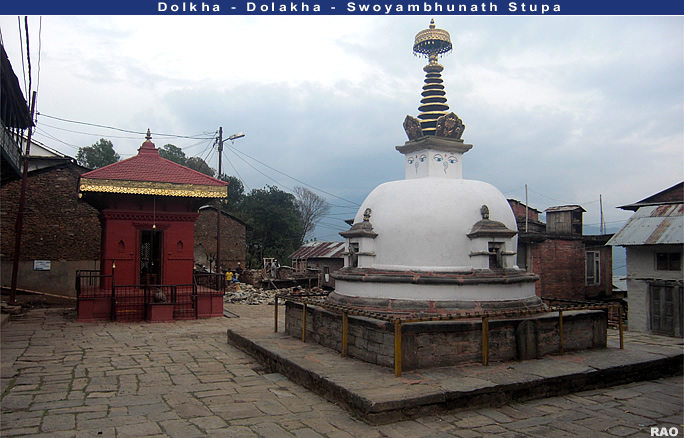 |
Charikot
and Dolakha |
|
|
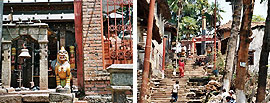 |
|
About
the Area: Old Dolakha |
It
abounds with ancient monuments, drama platforms and legends. Although predominantly,
Newari, the Thamis have a place in the legends of this town playing key
roles in major religious festivals.
In
the past, it is believed, the women of Dolakha were highly educated and
played important roles in government. Sacred and beloved also of the Gorkhali
King it is said that when the statue of Bhimsen in Dolakha perspires the
House of Gorkha will soffer unless propitiation is sent. The perspiration
of the God is wiped with cotton wool and sent to the Royal Palace at Kathmandu.
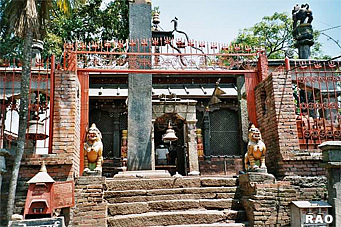 |
| Upon
receiving this, five different sets of propitiatory items are sent to the Bhimsen
Temple in Dolkha.
In
the past fabled for its wealth, it is now a town that is needed for restauration.
Fascinating still, Dolakha can provide those interested In the past with
many absorbing hours of sight-seeing.
The
speech of Dolakha is unlike any other Newari dialect and the people themselves
believe that language is the court language of the Pandava princes. |
|
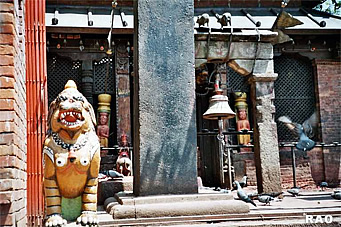 |
| The
Pandaves were five Royal Brothers who fought (with the help of Lord
Krishna) to regain their righfful Kingdorn in the battle of the Mahabharat.
The princes are believed by the Dolakha dwellers to have hidden in a cave
near Dolakha before the battle. Hence the claim that the Dolakha dialect
has come down from the Pandavas.
It
is indeed true that there are many references to caves or 'gufa' in the
Dolakha district, although geologists and hydrologists alike claim that
limestone, a prerequisite for cave formation, is missing in this area. |
|
top
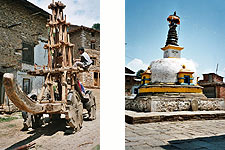 |
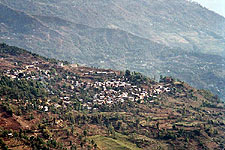 |
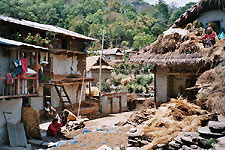 |
| Dolakha:
Chariot and stupa |
Dolakha |
Old
Dolakha: Village road |
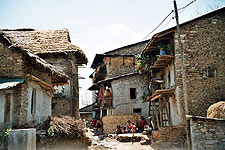 |
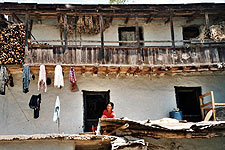 |
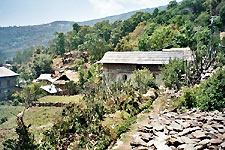 |
|
Old
Dolakha |
Old
Dolakha |
Old
Dolakha |
 |
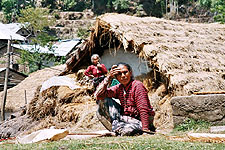 |
 |
| Old
Dolakha |
Old
Dolakha |
Old
Dolakha |
 |
|
Nepal |
|


